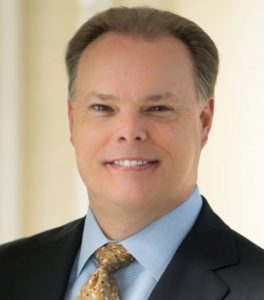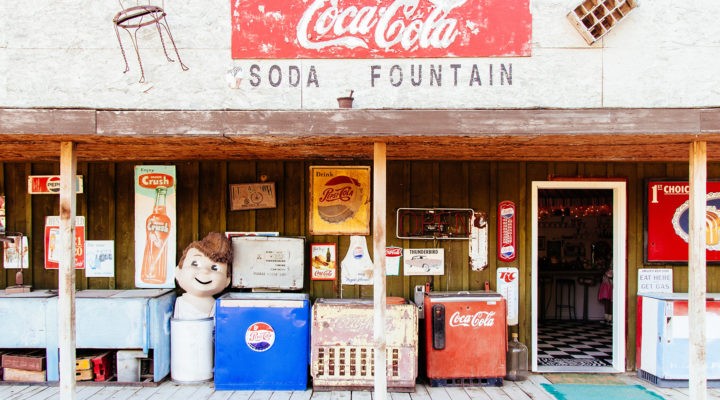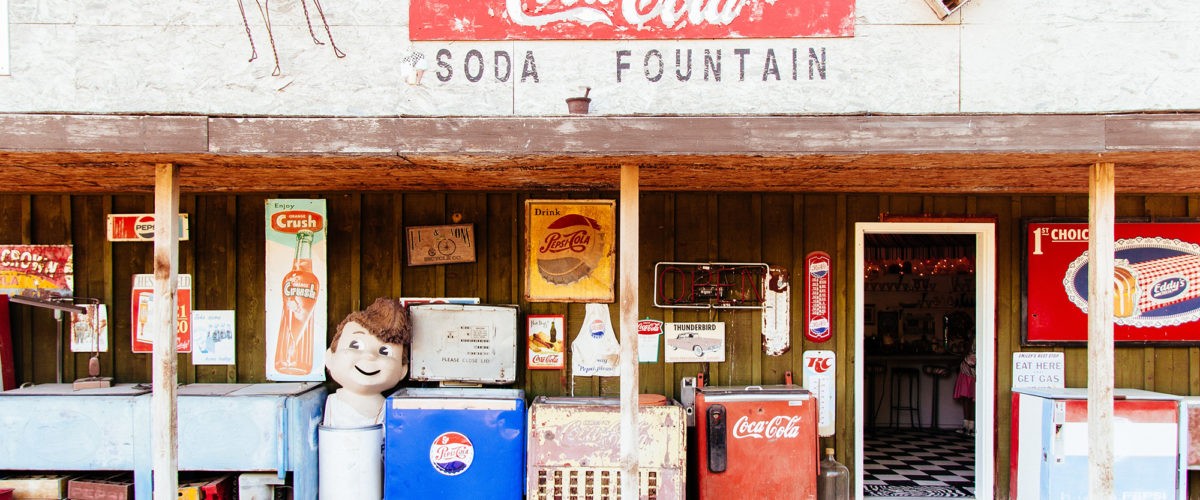When one of your favorite hangouts is an old country store, you come to understand that you are at a small crossroads of the world. People stop in who are local. They live in the neighborhood, so to speak.
Then there are people like me. I actually live in a small town a few miles away. The next town over, if you will. Finally, there is the highway traffic. Folks stop by Bubba-Doo’s, and maybe that stop will be their only.

Charles Qualls
Perhaps someone might stop once a year. These patrons will remain on the outer ring of the social reality no matter how many years go by. Although the phrase, “She ain’t from around here” might not get spoken aloud, it sure is thought a lot.
Locals like Ralph, Mickey, Fred and Landrum are fixtures there. They are the true insiders. All the rest of us are simply caught up in various placements within the orbit of this wacky country store that happens to have a restaurant and bar inside. Fortunately, though, the sure-enough natives of this community have taken me right in.
“I tell you the truth, pastor,” said Rob. “We’ve all seen ministers come and go. It’s a part of life here in the area. I’ve never seen one accepted and embraced any faster than folks have accepted you and your wife here.”
Coming from a true local, that was a welcomed assessment.
“We’ve been amazed at how people have taken us in,” I volunteered. “We feel like we belong, and you all have been so nice to us.”
“We feel like we belong, and you all have been so nice to us.”
Rob is a lifelong resident of the area, and a respected leader in the community. He runs a business not far away. But on this day, we were in the small office Winston kept in the rear of the store. Just three of us trying to broker a solution to an issue that involved two local governmental bodies. Rob serves on one of the groups, and I’m a member of the other.
If you have something of substance to talk about there, you might go and sit a spell in a genuine barber shop chair Winston had restored to like-new condition years ago. It’s the best chair in his office. He sat at his desk chair and Rob immediately gravitated toward one against the wall. That left me with the more unusual option.
There’s something surreal about discussing a matter of some gravity, on which local political consequences might ride, while also reclining slightly in a barber chair. Yet there I was for the better part of an hour.
The chair had brand-new leather upholstery and freshly chromed hardware that positively glistened. I half expected someone to rub shaving cream on the back of my neck, or to smell the distinctive bouquet of a long comb dipped in Barbicide.
As we walked back out into the store, there sat Hector at the bar. It was the end of a work day, and he was no doubt waiting on his good buddy Billy. The business we had was now concluded, we were simply chatting when Rob made his kind observation.
The two of us made our way over to Hector just as Rob had told me how mainstreamed I had become in such a short period of time. Hector picked up on this line of thought and chimed in.
“Yeah, I was thinking the same thing the other day about you. Folks here like you. They really like your wife, too. It’s like you all have been here longer than you have,” Hector offered.
“It’s like you all have been here longer than you have.”
“Well, that’s really nice to hear. I appreciate you passing that on to me,” I responded sheepishly.
“I got to ask you something though,” Hector said. “OK, ask away,” I ventured.
“Didn’t you say you moved here from the big city?! Why in the world would you have done that?” Billy inquired. “And how has that even been possible for you all? Isn’t it so different that it drives you crazy?”
There it was. The question I’ve received in regular doses for five years now. Always some version of “How can you be happy here when it’s so different from the huge metropolitan city center?”
I think people suspect we are on the run from something. Instinctively, they figure we couldn’t have relocated to such a small rural town voluntarily. Over the years, my imagination has told me they might suspect one of us got in trouble or got busted for something and had to start over. I even guess they might think one of us is in the witness protection program.
“Well, we got here the same as any other minister moves in our tradition. We don’t have a bishop. So, when the season came for us to begin another chapter, we chose from what was available and open. What was healthy and a good fit. We also chose from who wanted us.”
Now, I waited to see how he and Rob would respond.
“I’ve always wanted to ask you about this. You chose to come here?”
“Wait a minute,” Marleen blurted as she walked by the conversation. “I’ve always wanted to ask you about this. You chose to come here?” See, there it was. Surely she was part of the witness-protection story crowd, I guessed.
“The search committee came from the church and slowly we got together,” I explained. “My wife and I were both born in towns smaller than where we are now. Our first church was also in a small, middle Georgia county seat town. So, there’s some nostalgia and comfort to this.”
“A search committee from right over there 15 minutes away — they came into the city and brought you here?” Marleen asked.
“Yep. Not even a pair of handcuffs involved,” I quipped.
“But … here?” Hector asked. “I mean, I know why I’m here. I’ve lived here ever since I was born. My parents moved here, my family has been here three generations now. But you … are you happy?”
“How can you be happy?” Marleen chimed. “That city was so big. This place is so tiny.”
“Being happy here is easy,” I started. “Are there people I miss back there? You bet. We loved them. But do I miss all the traffic and the hyper-competitive culture? We thought we were supposed to miss all that. But every time we visit, we realize we don’t. There’s a special quality of life here.”
Then I added, “I’m not sure people who’ve lived here all their lives understand that the grass really isn’t greener on the other side.”
“I’m not sure people who’ve lived here all their lives understand that the grass really isn’t greener on the other side.”
“I bet after living here awhile, it’s tough to drive a car there,” one of them said.
“You know what? Last time I had a meeting down there I flew in and rented a car. I took off and as I got on the bypass interstate highway, there was a break in the traffic. I turned 90-degrees left and floored it. There I was going 80 in the far left lane, up against the concrete wall. I called my wife and said, ‘I still GOT it!’”
“The bypass? Sounds pretty big. How many lanes on that thing?” Billy asked.
“I counted them that day, just to remind myself,” I told him. “At the time, there were seven. Some parts of it narrow down to four.”
“How many of those go one way, and how many of those go the other?” he wondered. “No, Billy. That’s seven lanes going one way,” I explained. “On the other side of the concrete wall, that’s seven also going the other direction.”
“Yeeesh!” Rob shuddered. “I don’t want any part of that.
“How many people did you say live there?” Fred asked? Now, we had drawn a small group who were listening in.
“Eight million in the metropolitan statistical area.”
“The metropolitan statistical whut?!” Billy stammered. As always, I hadn’t even noticed when Billy had snuck in and grafted into the conversation. He has a way of doing that.
“The metropolitan statistical area. There are seven counties that make up the greater area there,” I explained.
“And you all lived right in the middle of all that?” Hector followed up.
“We lived in midtown,” I told him. “Midtown is the section right before you get as far as Downtown.”
“How different was it moving to a place like this, then?” Now even Rob was asking the question. He had traveled a little and seen some larger parts of the country. But I get the disconnect. I have to understand why they’re curious.
“After we’d been here about a year, I came home and asked my wife if she felt any different.”
“I think it’s actually been healthy for us,” I began. “After we’d been here about a year, I came home and asked my wife if she felt any different. She wanted to know what I meant. I told her I was in touch with feeling different somehow. It was like I realized I felt healthier after living here in the area for a year.”
She thought about it for a minute. “I haven’t called you again from the car in tears because I was stuck in traffic for an hour. Yes, now that you mention it, I do feel like I’m way less stressed.”
“OK, now I want to ask you about that,” Hector said. “Earlier, you said you were going 80 on the bypass. I thought the city was always gridlocked like a giant parking lot all the time.”
“That’s a misconception,” I said. “Yes, sometimes the city is prone to traffic tie-ups. When it happens, it can shut things down in areas and ripple through peoples’ schedules for hours. But there are actually two speeds that traffic moves there.”
“What … slow and slower?” Billy grinned.
“No, there’s parking lot speed. It’ll just grind to a halt,” I said. “Then, the other one is what I call ‘Shot Out of a Cannon.’ When the highways are moving, you’d better get in there and floor it. The speed limit posted on the sign seems to be only a suggestion. In fact, if you’re only going the speed limit on the highways, you’re the dangerous one.”
“Wasn’t that scary?” Stephanie asked as she stopped by for a minute.
“She told me that if I wanted to go to the raceway and ride in one of the cars, she would pay for it.”
“Here’s a weird answer,” I said. “One time we were on vacation at the beach. My wife treated me to something I had wanted to do for a long time. She told me that if I wanted to go to the raceway and ride in one of the cars, she would pay for it.”
“Don’t tell me you actually did that,” Rob reacted.
“Absolutely, I did. I mean, I’m not even a NASCAR race fan. Never been to one,” I added. “But I’d always wanted to see what that speed felt like. Anyway, I signed all the releases, and they suited me up. I could drive and the speed limit was 135 mph. I wanted to experience it closer to top speed. They told me a professional driver would have to do that, and I could sit in the passenger seat. But we would go 165 mph. That’s the one I chose.”
“Wasn’t that terrifying?” Stephanie asked.
“That’s the weird part. I think I was so used to high speeds and being up against a concrete wall and pinned into traffic for so long. There I was going 165 mph on the Daytona Speedway, and all I could do was laugh. It was fun. I’d do it again tomorrow if it didn’t cost so much.”
Then Hector brought all this back around to where we’d started: “But you’re happy here?”
“Hector, we’ve been happy everywhere we’ve lived. Louisville, Greensboro, even the big city. Any of them. The little middle-Georgia town and here. We are bloom-where-we’re-planted sort of people, I guess. So, the answer is yes.”
Here’s the deal. Do we have limitations around here in a rural area? Challenges that frustrate? Yes, of course. But we only had different kinds of issues in the bigger city. Still, we had problems. I don’t see any of this as good or bad, better or worse. Just different. Every place is just different.
“So, you don’t ever wish you could move back?” Rob asked.
I thought for a second. Then I added, “There’s that little decorative house sign you’ll see in shops. It says, ‘Home Is Wherever We Are.’ I know it sounds corny, but I was driving around the other day when that saying popped into my mind. I realized, at least for me, that’s actually true.”
“To this point, no. No, we’ve never wished we could move back. Hey, we love our friends and family back there. But we love our friends and chosen family here, too.”
Samantha, also from a family of recent immigrants who had settled out here a generation or so back, said, “I get it. Against all odds, I think life is good here!”
All Billy could say in response was, “Hmmm!”
You never know what’s going to happen at Bubba-Doo’s. You certainly never can know what the conversation will be. But often the exchanges will be meaningful. Substantive even. The kinds of things you can actually talk about when folks trust and love each other. That is, if you’ve ventured enough to connect with the people the way you can in this fascinating place.
Charles Qualls serves as pastor of Franklin Baptist Church in Franklin, Va. He is the author of eight books.
Articles in the Bubba-Doo’s series:
A native daughter returns to Bubba-Doo’s
Concern for our nation at Bubba-Doo’s
A thoughtful question at Bubba-Doo’s
A Bubba-Doo’s regular loses a loved one
An internet celebrity visits Bubba-Doo’s
Bubba-Doo’s: A behind-the-scenes look inside the stories
A dose of clinical grief from Stumpy at Bubba-Doo’s
Intrigue visits a booth at Bubba-Doo’s
A Christmas lesson at Bubba-Doo’s
A chat with Mickey at Bubba-Doo’s about whether I preach the gospel or not


